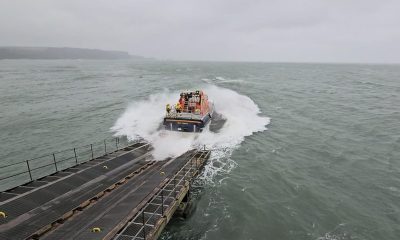News
Five year ban for man with lice riddled puppies

 MAGISTRATES at Haverfordwest Law Court have imposed a five year ban from keeping animals on a 27-year-old man who sold puppies that were riddled with lice.
MAGISTRATES at Haverfordwest Law Court have imposed a five year ban from keeping animals on a 27-year-old man who sold puppies that were riddled with lice.
Timothy Dean Lovell, of The Hills Caravan Park of Haverfordwest, pleaded guilty to charges of causing unnecessary suffering to a protected animal and failing to ensure that the needs of an animal were kept.
John Tarrant, who was prosecuting on behalf of the RSPCA, said: “On November 22, 2016 Katherine Press responded to Gumtree advert for a Springer Spaniel.
“The seller was a person named Timmy, and contact was to be made by text, and she had done so. She attended and spoke to a person called Michelle, and was taken to a shed at the rear of the property.
“She chose a puppy that she called Bella – no papers were provided, and she was told that everything had been done at the vets. She put puppy in a vest to travel, and thought she saw what looked like sawdust on its coat, but it appeared to be moving.
“She immediately contacted her vets, who described her as quiet and bordering on depressed, with an infestation of biting lice. The vet said that it was the worst infestation he had witnessed since becoming a vet, and it was likey the puppy had been suffering sicne birth, which would have been 2-5 weeks.”
The court heard that Ms Press said the puppy was suffering with malnutrition, and had a heart condition. She wrapped the puppy in a dressing gown before going to bed, and in the morning the dressing gown was covered in ‘hundreds of dead lice’.
Bella’s condition ‘quickly resolved itself’.
Mr Tarrant said: “She phoned [Lovell] to say she wasn’t happy with the condition of Bella. He seemed shocked at the condition of the puppy, and offered to swap it with another one – she refused that.
“He made contact with the vets, and agreed to return £100 into her bank account.”
The court also heard that in January this year, Ms Becky Rates was looking for a puppy for her mother, and she too found an advert on Gumtree’s website. She paid a £100 deposit and drove to Lovell’s address.
Mr Tarrant said: “[Lovell] waved them down and she was handed a box with a puppy inside. She noticed immediately what she thought was a skin condition, however £250 in cash was given.
“During the journey back home she noticed the puppy’s skin was dry with flakes, fleas with scabs on its skin. Lovell said he had been given wormer by the RSPCA, but box puppy had came in smelt dirty.
“She was immediately concerned about the safety of the puppy. The puppy had been scratching itself near the ears.”
The court heard that when the puppy was re-examined in 2017, it had made a ‘remarkabe transformation’, and had a shiny coat, no pot belly, a bright demeanour, and a 59% increase in body weight.
Mr Tarrant said that Lovell claimed he had gone to Pets At Home and bought flea and wormer, stating he didn’t think anything was particularly wrong. He said: “They were accidental litters, and denied it was to make money.”
In Lovell’s defence, Jane Thomas told the court that he did not deliberately set out to hurt the animals, and wasn’t prepared for family dog to have so many puppies, and he ‘didn’t really know how to care for them’.
In addition to being banned from keeping animals, he was also made subject to a 12 month community order, with the requirement of completing 150 hours of unpaid work.
Keith Hogben, RSPCA inspector, said: “Sadly, this man chose to make a quick buck from ill pups – flogging these two defenceless creatures when they urgently needed his support.
“The man chose cash over compassion, but thankfully both pups have recovered from the ordeal, and are now doing well in loving new homes.
“Owning animals is a privilege, and this case shows the RSPCA will not stand-by when people treat breeding pets as a cash bonus without necessary regard for the welfare of the animals involved.”
News
First dolphin killed by grey seal recorded in Welsh waters
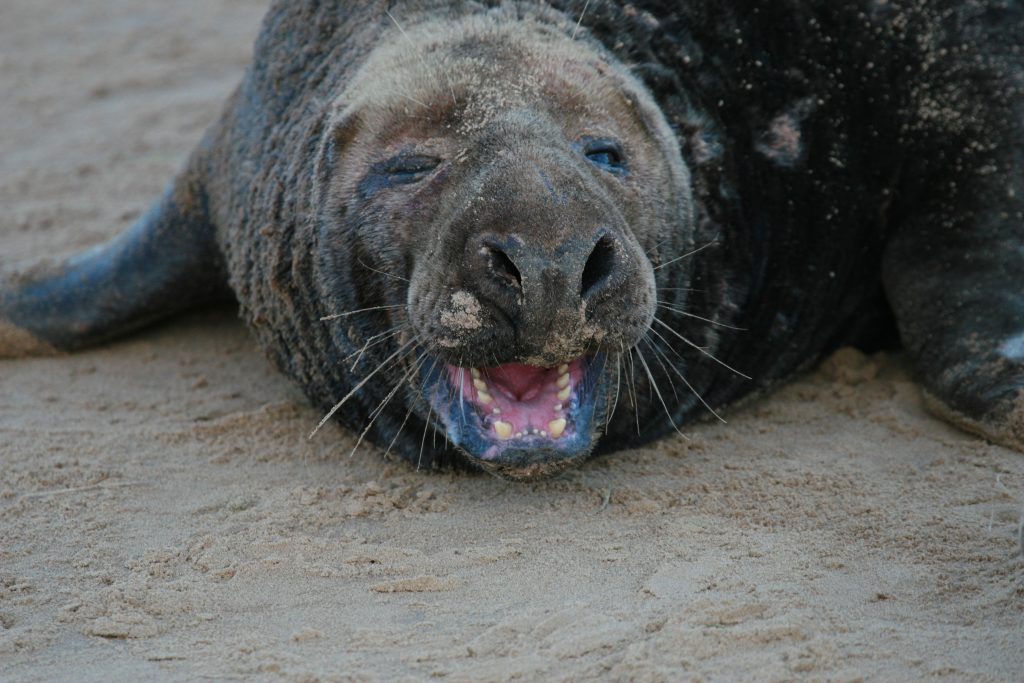
THE FIRST suspected case of a grey seal killing a common dolphin in Welsh waters has been recorded on a Pembrokeshire beach.
Marine investigators believe an adult female short-beaked common dolphin found stranded at Newgale Beach may have been attacked by a small group of grey seals operating between west Wales and the south-west coast of England.
The discovery marks a significant development in what researchers say is growing evidence that some male grey seals are preying on a wider range of marine mammals than previously understood.

Corkscrew injuries identified
The dolphin, measuring around six feet in length, suffered severe “corkscrew” injuries — distinctive spiral tearing of blubber and tissue — which are consistent with previous confirmed grey seal attacks on harbour porpoises.
Mat Westfield, Wales strandings co-ordinator for Marine Environmental Monitoring, said similar incidents had recently been investigated in north Devon.
He said: “It’s the first recorded case in Wales. Because it’s so close geographically to Devon, we suspect it may involve a small number of individual grey seals operating in that area.”
Bite marks were identified on the dolphin’s pectoral fins and around the torn blubber edges — patterns marine pathologists associate with grey seal predation.
The carcass has been sent for further examination. Full laboratory results could take up to six months, with tests expected to determine whether the dolphin had any pre-existing illness or injury.
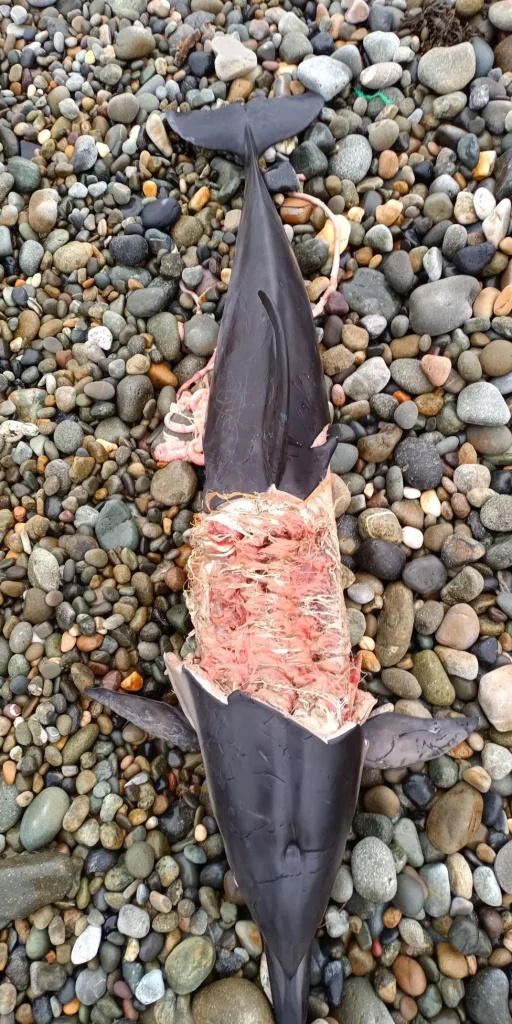
Behaviour linked to adult males
Dr Izzy Langley, of the Sea Mammal Research Unit at the University of St Andrews, said evidence suggests the behaviour is limited to certain adult male grey seals rather than the wider population.
Grey seals are typically fish-eaters, feeding on sand eels, cod, herring and squid. However, over the past decade researchers have documented attacks on harbour porpoises and even other seal species.
Dr Langley said there was no clear evidence that dolphins targeted in such incidents were already sick or weakened.
She explained that researchers believe the attacks may involve ambush tactics from below, catching dolphins unaware while they forage.
“We’ve always found it difficult to understand how grey seals could kill a healthy dolphin,” she said. “It suggests this may not be an evolved predator-prey relationship, but behaviour developed by individual animals.”
Every confirmed case so far has involved adult male grey seals, leading scientists to suspect the behaviour may be learned rather than instinctive.
Rare but significant
Grey seals are common along the Pembrokeshire coastline and are a familiar sight around Ramsey Island, Skomer and the Marloes peninsula. While attacks on harbour porpoises have been recorded previously in Welsh waters, this is believed to be the first suspected fatal attack on a common dolphin.
Marine experts stress that such incidents remain rare and do not represent widespread predatory behaviour across the grey seal population.
However, the case is likely to prompt further monitoring of strandings along the west Wales coast as researchers seek to understand whether this represents an isolated event — or the emergence of a new behavioural pattern.
Health
Hywel Dda warns of ‘significant pressure’ as A&E departments remain packed

Patients urged to use NHS 111 as Withybush, Glangwili and Bronglais face continued strain
HYWEL DDA University Health Board has warned that its emergency departments remain under “significant pressure,” with particular concern at Withybush Hospital.
In a statement issued on Monday (Mar 2), the Health Board said A&E departments at Withybush, Glangwili and Bronglais hospitals were continuing to experience high demand.
Patients were urged to contact NHS 111 Wales for advice if they are unsure where to seek help, and to use community pharmacies and minor injury units for non life-threatening conditions.
The Health Board said: “Help us to help you get the right care in the right place.”
It added that those with serious or life-threatening emergencies should always call 999.
Delayed discharges impacting flow
The statement also highlighted pressures caused by delayed discharges, urging families to support relatives who are medically fit to leave hospital but are waiting for homecare or community health support.
Bed-blocking, often linked to shortages in social care packages, is widely acknowledged as a key factor in A&E overcrowding, as patients cannot be moved from emergency departments into inpatient wards.
When wards are full, ambulance handovers slow and patients can face long waits for assessment and treatment.
Withybush under particular strain
Withybush Hospital in Haverfordwest was singled out as being under “particular” pressure.
There were no signs yet that things were improving today (Tuesday).
The Health Board did not release figures for waiting times, ambulance delays, or bed occupancy rates in its statement.
However, it confirmed that demand remains high across west Wales.
Alternative services highlighted
The public were reminded that:
- NHS 111 Wales can provide 24-hour advice.
- Option 2 via 111 offers urgent mental health support.
- Community pharmacies can treat a range of common ailments without appointment.
- Minor injury units are available for non life-threatening issues.
The Health Board thanked residents for their support and cooperation during what it described as a challenging period.
News
Vote.wales: Information website launched to give people voting confidence
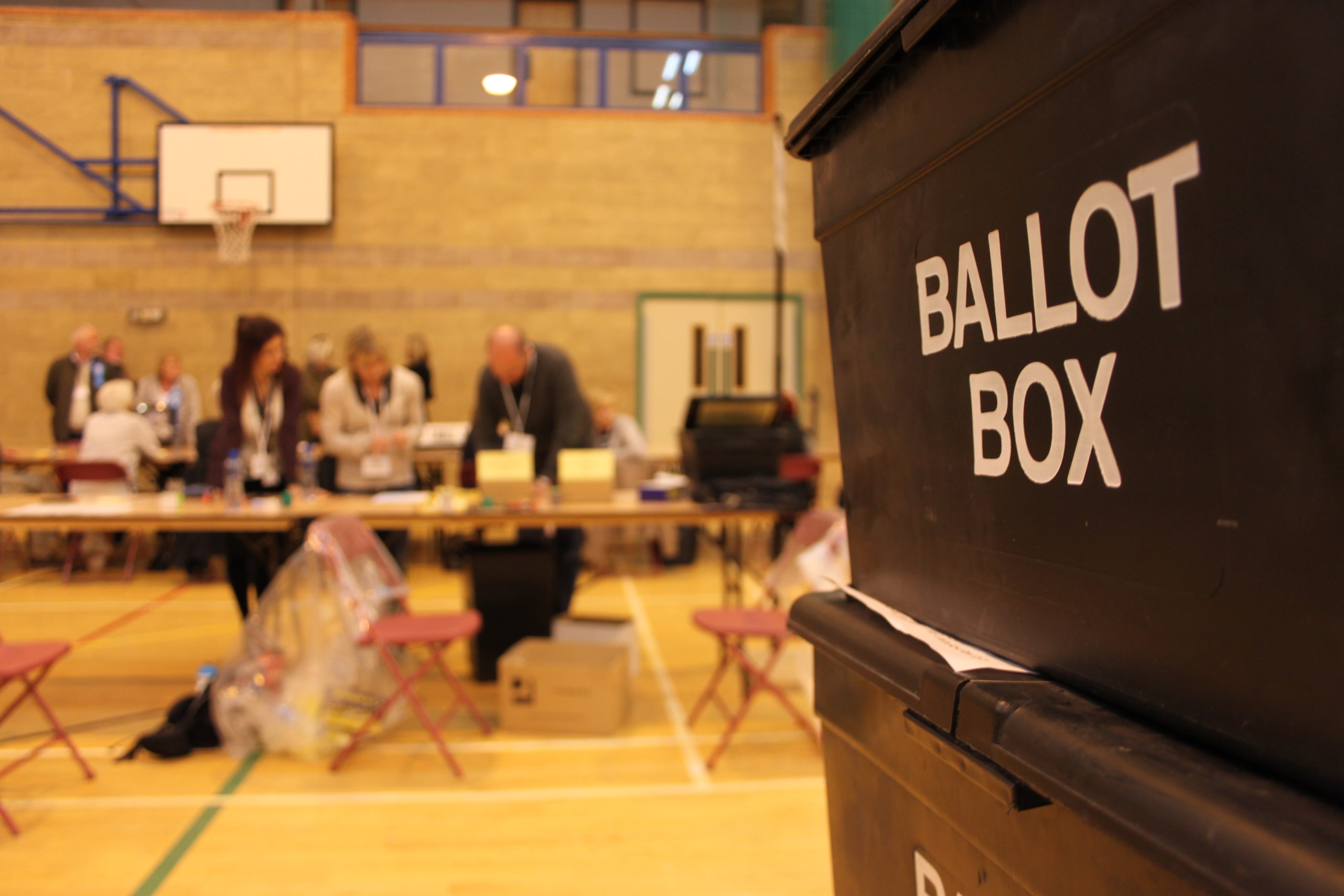
Vote.wales to host all essential election information for the Senedd election
A BRAND new voter information website, vote.wales, has been launched today (2 March) by the Electoral Management Board for Wales, part of the Democracy and Boundary Commission Cymru.
Vote.wales is the first website of its kind in Wales and tells people everything they need to know about the election, including advice about voting, information about the Senedd, and a postcode search function to provide tailored local information.
The website holds information about who can register to vote, how voting works in polling stations, as well as postal and proxy voting, and what accessibility support people can expect when they go to vote.
A postcode search function on vote.wales allows voters to see which of Wales’ 16 new constituencies they will be voting in, as well as telling them where their local polling station is located.
Once nominations have closed, the website will also inform voters which political parties and independent candidates are standing in their area.
The website explains how the Senedd works and what it does, highlighting which policy areas are devolved to the Senedd and which remain the responsibility of the UK Parliament. It also sets out the difference between the Senedd and the Welsh Government.
Further developments are expected in the coming weeks. In a first for Welsh elections, voters will soon be able to access detailed accessibility information about their local polling station. Political parties and independent candidates will also be able to publish their election leaflets on the platform, so voters can see not only who is standing but what they stand for.
Following the election, vote.wales will publish the full election results.
Commenting on the launch, Shereen Williams MBE OStJ, Chief Executive of the Democracy and Boundary Commission Cymru, said:
“An important election is coming on 7 May, and vote.wales is the place to go to find out all about it.
“We know that people across Wales are looking forward to making their voices heard at this election, but many people don’t feel they have all the information they need before they go and vote.
“If you have questions about this election, then head to vote.wales. Voting confidence starts here.”
-

 Health7 days ago
Health7 days agoHealth services row escalates as MSs demand action over Withybush and Bronglais
-
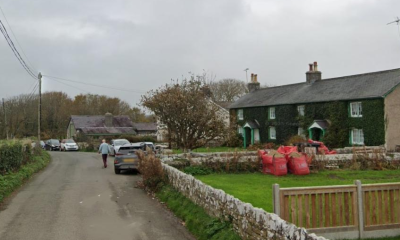
 Business7 days ago
Business7 days agoBosherston Bistro 10pm alcohol licence granted by council
-

 Business6 days ago
Business6 days agoCouncil reviewing complaints over Computer Solutions Wales as concerns continue
-

 Health6 days ago
Health6 days agoPetition calling for Withybush intervention nears 5,000 signatures
-

 News6 days ago
News6 days agoWelsh Government criticised after Russian-linked drone image used in defence announcement
-

 Crime6 days ago
Crime6 days agoMilford Haven pensioner admits sexually assaulting two shop workers
-

 Crime7 days ago
Crime7 days agoManchester men deny aggravated burglary after armed raid on dog breeder
-

 News7 days ago
News7 days agoSenedd backs assisted dying legislation in historic vote

























